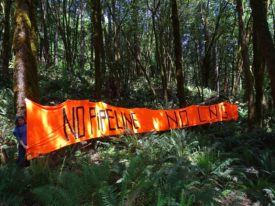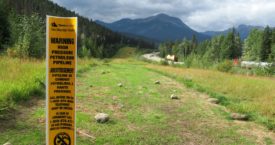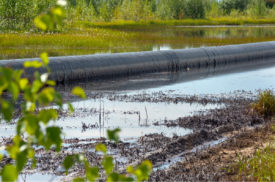Kristin
My inbox is always too full. Some of it is my fault (yes, I do want to hear more about kid-friendly restaurants in Portland, thank you Red Tricycle), and some of it is other people’s fault (Kristin Gilbert in Cincinnatti, please remind yourself of YOUR email address and stop signing MY address up for emails from wedding caterers and photographers). So I am delighted to have found a way to magically make the unwanted emails stop: unroll.me. Presto!
Wonder what your lifetime earnings would be if you were a man instead of a woman? Hint: you would earn more. You can test drive your alternate earning realities here.
Serena
Last weekend, I watched the absolutely breathtaking film DamNation, and I highly recommend it. It was an informative, engaging, moving, and visually stunning feat of film-making by some very talented folks, with a generous deal of bankrolling by the company Patagonia. Just wow. (H/t Stephen S.) See it as soon as you can, and enjoy the trailer for now:
If you missed the Totem Pole Journey passing through the Northwest (or even if you made it!), these photos of the community that came together for it are can’t-miss. Hats off to James Leder for capturing it.
After the Ray Rice domestic abuse video came out earlier this week, a new hashtag began trending on Twitter, bringing together the painful lines of reasoning behind victims’ staying with their abusers: here’s a sampling of #WhyIStayed.
Clark
International coal industry analysts don’t see much good news on the horizon for the coal industry, either domestically or globally.
The global coal industry…is not in great shape at the moment…mainly owing to the significant oversupply of coal, which was exacerbated by a slower-than-expected growth in demand, especially from China, which was weighing heavy on the industry…
[D]espite…flickers of optimism earlier this year for increased demand for thermal coal in 2014…a cooler summer had wiped out this optimism, as utilities did not restock with the anticipated higher volumes…Another factor keeping demand low was the congested rail capacity in the US, especially around the Powder River Basin.
Curiously, the article suggests that delays in NW coal terminals are part of the industry’s problem. That’s particularly strange, since the article specifically cites oversupply as being at the root of the industry’s woes: many Australian and Indonesian companies signed long-term shipping agreements that are now forcing them to sell coal at a loss, or else face even stiffer contractual penalties. So perhaps the delays in building NW coal terminals have helped the domestic coal industry, rather than hurting it.
Regardless, the article suggests that there’s likely to be a lot more bad news for the global coal industry in the months and years to come. Stay tuned to see if the analyst’s predictions come true.
Alan
Missed this in July: conservatism may be wired into some brains.
The marriage bonus that children experience—children who live with two parents do better on a number of measures throughout life—may have to do not with marriage itself but with the kind of skills and traits that allow people to get and stay married. So says WaPo.
Eric
Dear Northwest, if you want to know what it’s like to live alongside coal terminals, please cast your gaze on southern Louisiana. The New Orleans Times-Picayune reported this week that monitors from the Gulf Restoration Network are finding huge quantities of coal and petroleum coke strewn through sensitive marshlands. To wit:
In his complaint, the Gulf Restoration Network’s Scott Eustis said that in roughly half of a 5-acre area at the Lake Hermitage, the ground was “coated in dice-sized pieces of coal and petroleum coke, at about 25% of the visible surface.” The complaint also said that, “About every meter or so, there was a golf ball sized piece or a baseball sized piece. Softball sized chunks were found.”
“This material contains heavy metals like arsenic and mercury, residual oils and (polycyclic aromatic hydrocarbons), and can make soils acidic,” Eustis said.
TVW has a great look at the local activists and leaders who are opposing oil trains in Washington.
A former marine explains all the weapons of war used by police in Ferguson, Missouri. It’s pretty damning:
The BEARCAT G3 is the SWAT team’s version of the military’s Mine Resistant Ambush Protected (MRAP) vehicle, or better yet its MRAP All Terrain Vehicle. Seeing that there aren’t any mines or IEDs in Ferguson, that the chances of an ambush are slim to none, and that the terrain is relatively boring, the decision of the St. Louis County Police Department to roll out with (or even own) one of these is questionable.









